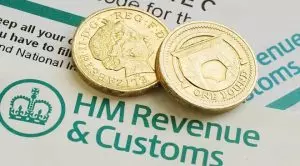 The non-ministerial department of the UK Government Her Majesty’s Revenue and Customs (HMRC) revealed it has planned the implementation of new rules in regards to free bets, discounted betting and freeplays. The department, which is responsible for taxes collection, state support payments and regulatory regimes administration, explained that the new piece of legislation is to be included in the Finance Bill 2017.
The non-ministerial department of the UK Government Her Majesty’s Revenue and Customs (HMRC) revealed it has planned the implementation of new rules in regards to free bets, discounted betting and freeplays. The department, which is responsible for taxes collection, state support payments and regulatory regimes administration, explained that the new piece of legislation is to be included in the Finance Bill 2017.
The changes in tax legislation are expected to come into effect from accounting periods starting on/after August 1st, 2017.
The addition of new legislative rules comes as part of the UK Government’s strategy to maximise the customer protection in order to offset the negative impact that gambling may inflict on more vulnerable users.
According to the HMRC, if tax regulation is changed, an addition amount of tax revenue estimated to £45 million could be expected over the 2017/2018 fiscal year. As reported by the department, this figure could increased to £110 million by the fiscal 2020/2021.
As revealed by the HMRC, the new piece of legislation is aimed at guaranteeing that under certain circumstances, gambling operators will be required to account for duty when a customer of theirs places a free bet or a reduced-rate bet. The duty is to be calculated on the amount of money that would have been paid by the operator’s customer in case that the special free bet or reduced-rate bet offer had not been active.
Definition of prizes is another aspect of online gambling that is to be amended by the UK’s tax authority. The modification is found necessary by the Government’s department, as the latter needs to make sure that gambling operators would not be able to use the value of freeplays that are granted to customers as prizes in order to reduce the profit which is subjected to duty payments.
Online gambling operators that are accountable for Remote Gaming Duty are also to be charged under the new pieces of legislation. In other words, the amendments in the new rules regarding taxes will apply not only to land-based gambling operators, but also to the ones who have their operations offered on the Internet, by television, radio, telephone as well as any other electronic communication.
- Author


